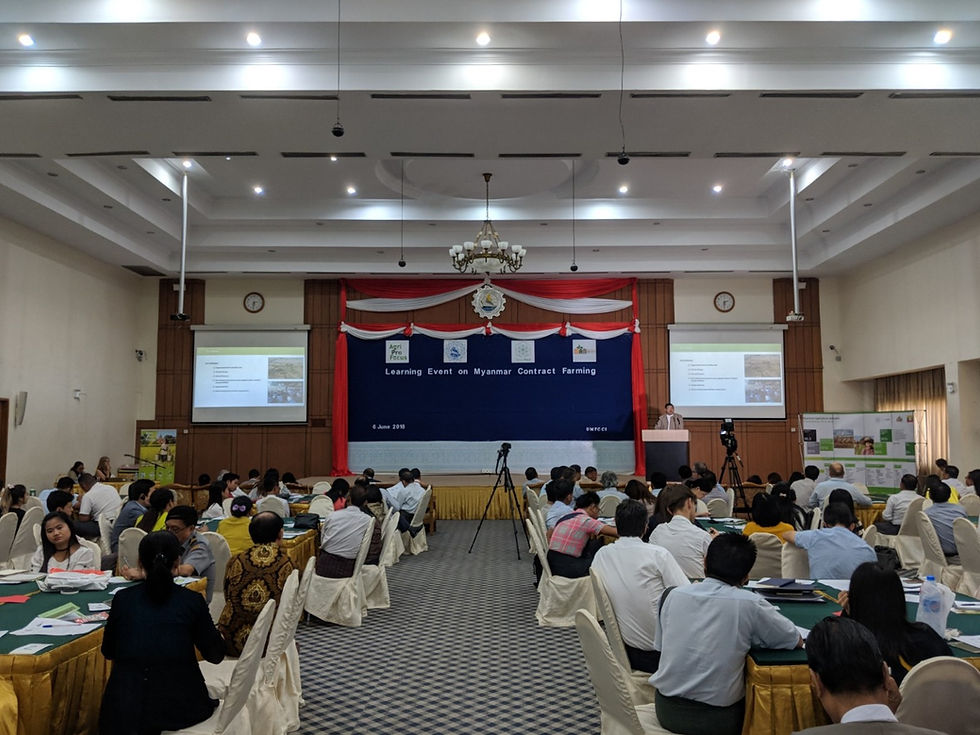Contract Farming: Challenges and Opportunities
- Aug 14, 2018
- 2 min read
Updated: Nov 17, 2022
Over the last century a wide range of pre-harvest agreements that can, in one way or another, be termed contract farming have been brokered to organize commercial agricultural production. More recently, however, we have seen a growing interest in contract farming schemes in developing countries such as Myanmar. This is not only as a means to increase income and profitability for highly professionalized producers and buyers, but as a production model with the potential to lift smallholder farmers by linking them to market opportunities otherwise inaccessible due to impediments such as distance, processing standards or access to technology.
Contract farming should not, however, be thought of as a panacea to eliminate rural poverty - it only makes sense for certain commodities in certain markets. Moreover, if improperly managed, contract farming can lead to a plethora of problems, including abuse of power, market failure, side-selling, detrimental environmental and gender effects, falling incomes; and the transformation of smallholder farmers into wage-earning agricultural laborers on their own land.

Due to significant interest in contract farming schemes, on 6 June 2018, Grow Asia, the Myanmar Agriculture Network (MAN) and AgriProFocus Myanmar ran our first joint learning event on the topic. The main objectives of the event were: to build an understanding amongst our member base of the different contract farming models available and their suitability for Myanmar, to explore good practices from those already implementing contract farming schemes in South East Asia and to identify the key challenges and success factors for effectively engaging and lifting smallholders through contract farming.
Drawing on the experience and expertise of those within the Grow Asia and AgriProFocus networks, the event hosted speakers from the Myanmar government, the Mekong Institute, East West Seed, Myanmar Agribusiness Public Corporation Limited, the Vietnam Tea Association and CJ Cheiljedang Myanmar, and drew 140 participants from government, the private sector, CSOs, aid organizations, farmer associations, academe and financial institutions.
To multiply the impact of the event and broaden the reach of the learnings distilled, we have put together this document as a summary of the key take-aways. We hope that you – our partners, stakeholders and peers – will continue to convene and build on this knowledge base, using it as a reference point to guide further action.
Looking ahead, Grow Asia, MAN and AgriProFocus are also exploring the possibility of facilitating a policy roundtable dialogue. This event would bring together key players in the landscape to develop policy recommendations – where needed – to the Ministry of Agriculture, Livestock and Irrigation and provide support where needed.
We are, as always, interested in hearing from businesses and development organizations who are open to sharing their own experience with us. If your organization has successfully implemented contract farming schemes in Southeast Asia, or would like support doing so, please do not hesitate to reach out to us at info@growasia.org.




